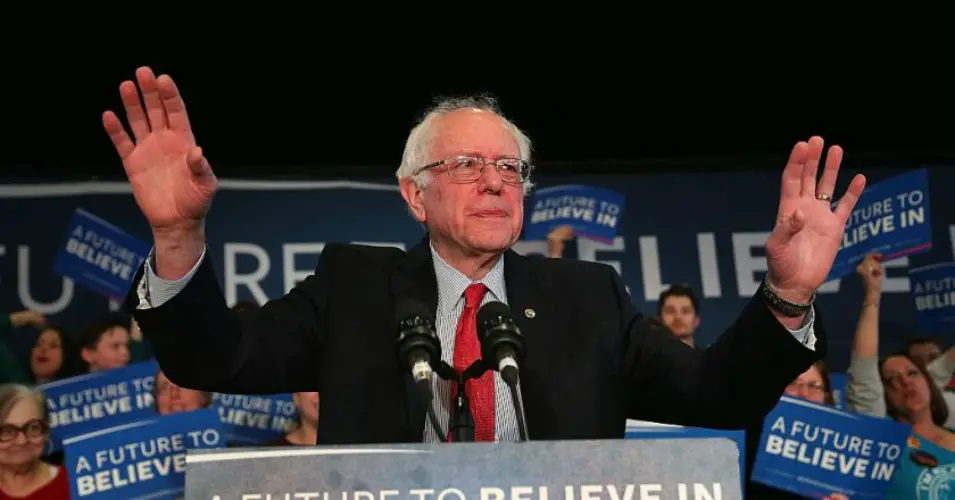Bernie Sanders had a big weekend, with landslide wins in three states. Does that mean he has a chance of winning, after all the losses, and the delegate deficit? The Sanders team says, yes. In fact, they say the planned it that way.
Business Insider is reporting that Sanders is being strategic. Why waste time on states where there’s no chance of winning, such as in the southern states, with large minority populations, whom he has not courted.
Bernie Sanders’ campaign floated a new idea on Monday: Sanders beats Democratic presidential frontrunner Hillary Clinton in states where he invests in winning.
Sanders adviser Tad Devine told reporters that his candidate’s large delegate deficit to Clinton was the result of the campaign’s deliberate strategy to forgo certain states that they were certain to lose.
Devine asserted that the Sanders campaign did not invest serious cash or time in Texas, Alabama, Virginia, Louisiana, Tennessee, Missouri, Georgia, and Arkansas, and may have been able to compete if it had. . .
“Those eight states where we didn’t compete principally on ‘Super Tuesday’ resulted in almost all of her pledged delegate advantage right now,” Devine said.
“Essentially, 97% of her delegate lead today comes from those eight states where we did not compete,” he added.
Sanders claims that he can catch up to Hillary Clinton in pledged delegates, and once that happens, the Superdelates should peel away from her, as they did in 2008, according to USA Today.
Sanders has pulled in nearly $4 million in contributions since his overwhelming wins on Saturday in Washington State, Alaska and Hawaii. That gives the campaign the resources it needs to compete in the next major contest, Wisconsin on April 5. Sanders will spend Tuesday and Wednesday in the state.
Tad Devine, senior adviser on Sanders’ campaign, said neither Sanders nor Clinton will win the nomination based on pledged delegates alone and that superdelegates are key for both candidates.
Weaver said the campaign’s primary focus is capturing pledged delegates in Wisconsin and in New York on April 19. But the campaign has stayed in communication with superdelegates and has identified a “substantial” number who support Sanders, even though they aren’t prepared to say so publicly, he said.
Back to the Business Insider story, what started out as a friendly competition has turned into a tough fight, complete with name-calling and heavy criticism, including questioning Hillary’s honesty. Can the party come together that?
“Bernie is seen as uniquely honest and trustworthy among all the presidential candidates, particularly compared to Trump and Clinton,” he said. “If you look at all three candidates — Bernie, Trump, and Hillary Clinton — Bernie is seen as very much honest and trustworthy by voters, while Trump and Clinton are not seen as trustworthy.”
Though Clinton and Sanders have sharpened their attacks on each other, Devine said that the party will be able to be stitched back together no matter who clinches the nomination.
“It’s not going to get so nasty we can’t put the party back together,” Devine said.
That will remain to be seen.
Donate Now to Support Election Central
- Help defend independent journalism
- Directly support this website and our efforts
